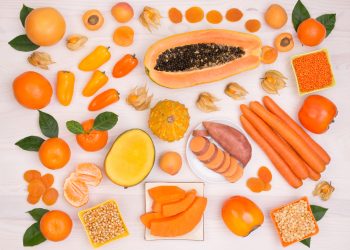The ancient practice of eating organ meats has been made a modern comeback in recent years.
While many people might think of adjectives like ‘gross’ or ‘outdated’ at the first thought of such a practice, modern science says differently. It turns out that organ meats could be a crucial missing piece of the modern wellness routine.
Keep reading to learn more about why ancient cultures — and their views on organ meats — might have been right all along.
- What are organ meats?
- Why ancient cultures ate organs
- The #1 reason to eat organ meats today
- 3 top benefits of organ meats
- Organ meats, meet the modern world
What are organ meats?
The term organ meats refers to fresh organs — typically from a cow or other ruminant animal — that are used as food.
Compared to other foods, organ meats are pretty perfect. They’re rich in most of the substances you need to survive and thrive, including essential amino acids, fatty acids, vitamins, minerals, bioactive cofactors, and more.
For all the way technology has changed for the better in the last, oh, one hundred years, we humans still haven’t evolved past the concept of good nutrition. Our species grew up eating the whole animal — nose-to-tail — and will likely never outgrow its reliance on these foods. We’re simply hardwired to crave the fats and fat-soluble vitamins present in organ meats.
In addition to being validated by modern science, organ meats are validated by our species’ historical record: humans have been eating organ meats for eons. More on the why behind this practice coming up next.
Why ancient cultures ate organs
Contrary to what you might be thinking, our distant ancestors didn’t eat organs because they were superstitious. Nor did they eat organ meats because they were unaware of the needs of the bodies. On the contrary, the practice of eating organ meats was likely perfected by generations and generations’ worth of trial-and-error.
And these ancient ancestors didn’t eat their organ meats begrudgingly, either. Anthropological research shows that the ancients prized fresh organ meats above any other food. When times were tough, organ meats were allotted to leading chiefs, pregnant women, and children — but when times were good, they were distributed to everybody. [1]
Our ancestors ate organ meats to maximise their fertility rates, boost their energy levels, clear their minds, and ensure the health of future generations. And that’s just the shortlist.
It seems that our ancestors somehow knew the importance of organ meats, despite the fact that no scientific research existed on this topic, and despite the reality that nutritional analysis wasn’t available. In the words of whole-foods pioneer Sally Fallon, “without knowing the names of the vitamins contained in these foods, isolated traditional societies recognised their importance in the diet and liberally ate animal products containing them. They rightly believed such foods to be necessary for fertility and the optimum development of children.” [2]
So…what organs did our ancestors eat? Likely all of them! That includes the kidneys, brain, heart, tripe, thymus, thyroid, and more. Of all organ meats, it seems like the liver was especially prized. And, unlike many beef-eaters today, the ancients much preferred organs to muscle meat. When Weston A. Price visited native Americans in 1933, he must have been somewhat surprised that “much of the muscle meat of [an animal’ was fed to the dogs.” [3]
The #1 reason to eat organ meats today
While the importance of organ meats is almost timeless, these foods might be even more crucial today.
Why? Because our soil is depleted — which means fruits and vegetables are no longer as nutrient-dense as they once were. Research from the University of Texas in Austin has found that the average vegetable is lower in protein, calcium, iron, vitamin C, and B vitamins than it was 50 years ago. [4] (Poor farming practices are the primary reason for all this soil depletion, in case you were wondering.)
And don’t think you can turn to multivitamins to circumvent this problem. A growing number of experts agree that multivitamins seem to work better in theory than they do in practice. According to Dr. Guallar of The Johns Hopkins School of Public Health, the likelihood that multivitamins possess “a clear health benefit” is “very small — and also we have no clear proof yet of such benefit.” [5]
3 top benefits of organ meats
If colourful fruits and vegetables can no longer be relied on to supply all of our vital nutrients, and if the benefits of multivitamins are far from proven, then that really only leaves us with one viable option: organ meats. Three of their top benefits can be found below.
- Increased energy
- Better mood
- Improved body composition
Increased energy
Organ meats have long been known to promote vigor, vitality, and health. The tribespeople of millennia-past took organ meats to boost their hunting prowess; the athletes of centuries past took organ meats to fuel their feats of strength. Perhaps it’s telling that one of the strongest men of all time, Germany’s Arthur Saxon, used a beef organ extract to fuel lifts that remain unmatched to this day. [6]
In addition to providing your body with tonnes of energy-boosting B vitamins, organ meats may also protect your body’s own organs from the detriment of energy deficiency. [8]
Better mood
B vitamins aren’t just pro-metabolic, of course. They’re also pro-mood! Given that organ meats are the best source of these vitamins on the planet, those who are seeking a natural pick-me-up might be wise to try them. Many people who eat organ meats (or try our organ meat supplements) report feeling happy, centered, and clear-headed because of it.
Scientific research adds another layer to the connection between organ meat intake and happiness. Studies show that B vitamins may also help your brain grow and develop new neural pathways, adding a newfound flexibility to your mental framework. Because, let’s face it: it’s easier to stay happy if you stay flexible! [9]
Improved body composition
Organ meats may also set the stage for easier weight loss and faster muscle gain. At one time in history, this type of body recomposition was thought to be impossible — but it turns out that’s not the case. The protein and other pro-metabolic substances in organ meats may help your body lose fat at the same time it synthesizes new muscle.
That makes beef organs a great addition to practically any dietary plan or way of eating (besides veganism, of course). Some people report incredible results from pairing organ meats with a mostly-meat keto diet. Take it from ‘Indian Joe,’ a farmhand who reached supercentenarian status eating only organ meats and other animal products: [10]
“[…] he looked in his 40s and was incredibly cut and muscular. He looked like Conan. I was shocked when I found out he was well into his 70s. Indian Joe lived to 115 years of age and ate nothing but meat, glands, and intestines!”
– Physical culture pioneer Ron Kosloff
Organ meats, meet the modern world
The only major downside of organ meats is a practical one: their flavour. Organ meats can taste metallic, slimy, and downright weird to the modern palate. You might be able to mask these elements with proper cooking and preparation, however. Here are some proven ideas.
- Soak your organ meats milk
- Soak your organ meats in citrus juices
- Fry organ meats with lots of butter/coconut oil
- Bread organ meats with almond or tapioca flour
- Pair organ meats with carmelised onions or other veggies
But an even easier solution is found in taking organ meat supplements. These supplements are flavourless, odourless, and inconvenience-free. In a very real sense, they place the distilled wisdom of our ancestors into the palm of your hand. Organ meat supplements are ideal for anyone who’s too busy to source and cook beef liver. (They’re also ideal for those of you who’d rather not try.)
Ready to rediscover organ meats on a personal level?
Organ meats may very well be one of nature’s antidotes to the stress, strife, and poor nutrition of modern times. Try them for yourself if you haven’t already.
You can experience the power of organ meats even if a lack of time or lot of trepidation is holding you back from preparing organs the old-fashioned way. At Hirsch Organic we’ve done our best to make premium beef organ meat supplements practical — and palatable — for all.









